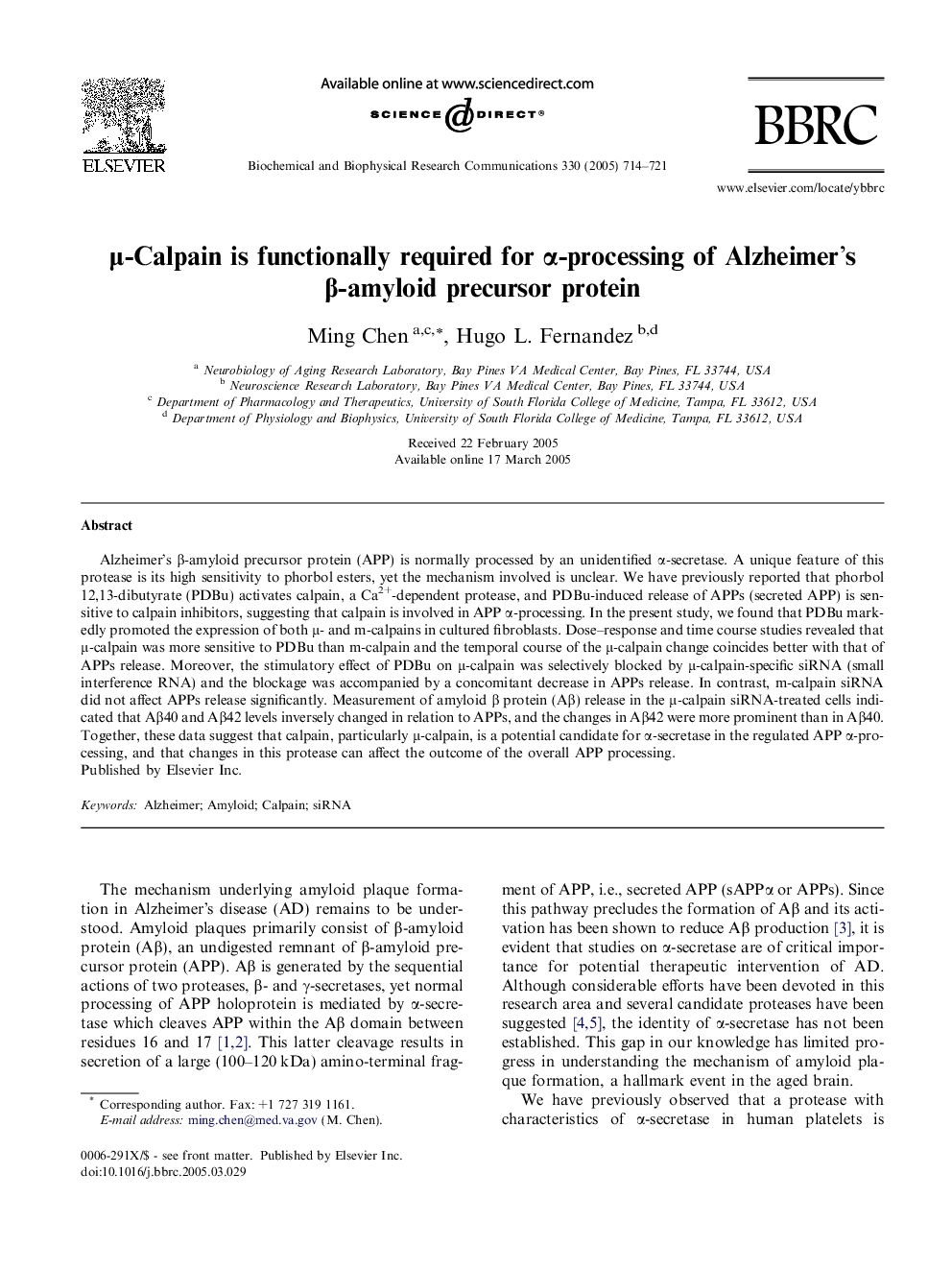| Article ID | Journal | Published Year | Pages | File Type |
|---|---|---|---|---|
| 10770240 | Biochemical and Biophysical Research Communications | 2005 | 8 Pages |
Abstract
Alzheimer's β-amyloid precursor protein (APP) is normally processed by an unidentified α-secretase. A unique feature of this protease is its high sensitivity to phorbol esters, yet the mechanism involved is unclear. We have previously reported that phorbol 12,13-dibutyrate (PDBu) activates calpain, a Ca2+-dependent protease, and PDBu-induced release of APPs (secreted APP) is sensitive to calpain inhibitors, suggesting that calpain is involved in APP α-processing. In the present study, we found that PDBu markedly promoted the expression of both μ- and m-calpains in cultured fibroblasts. Dose-response and time course studies revealed that μ-calpain was more sensitive to PDBu than m-calpain and the temporal course of the μ-calpain change coincides better with that of APPs release. Moreover, the stimulatory effect of PDBu on μ-calpain was selectively blocked by μ-calpain-specific siRNA (small interference RNA) and the blockage was accompanied by a concomitant decrease in APPs release. In contrast, m-calpain siRNA did not affect APPs release significantly. Measurement of amyloid β protein (Aβ) release in the μ-calpain siRNA-treated cells indicated that Aβ40 and Aβ42 levels inversely changed in relation to APPs, and the changes in Aβ42 were more prominent than in Aβ40. Together, these data suggest that calpain, particularly μ-calpain, is a potential candidate for α-secretase in the regulated APP α-processing, and that changes in this protease can affect the outcome of the overall APP processing.
Related Topics
Life Sciences
Biochemistry, Genetics and Molecular Biology
Biochemistry
Authors
Ming Chen, Hugo L. Fernandez,
